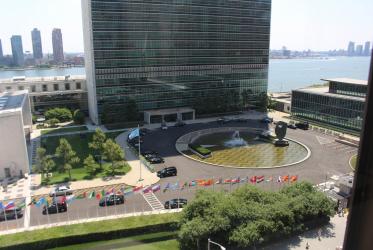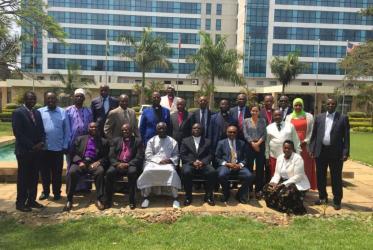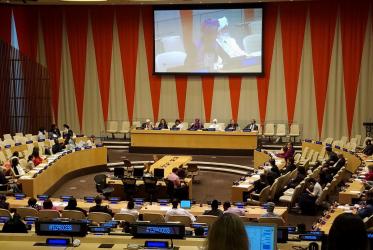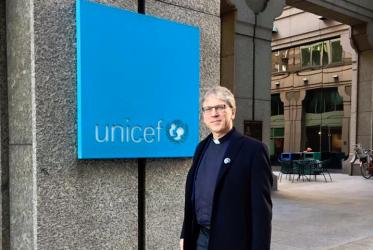Displaying 61 - 80 of 225
17 January 2018
WCC appoints new representative to the UN
27 October 2017
Ecumenical diakonia: sharing God’s gifts at all tables
05 October 2017
New ACT general secretary envisions more prophetic diakonia
22 February 2017
Colombia peace accord brings both joy and concern
19 August 2016
Making SDGs progress everybody’s business
19 May 2016










